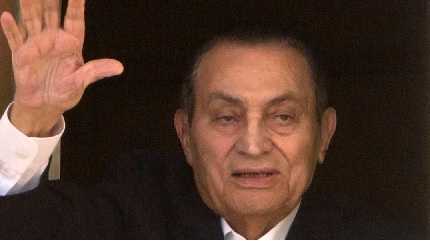
21 Feb 2022; MEMO: A leak from one of the world's biggest private banks, Credit Suisse, reveals that it opened accounts for clients involved in torture and corruption including from the Middle East and kept them open even after details of their crimes were made public.
An anonymous whistleblower leaked details of thousands of the bank's clients to the German newspaper Süddeutsche Zeitung, which found among them dictators, spies and corrupt politicians with accounts worth a collective value of $8 billion.
Breaching bank secrecy is a criminal offence under Swiss law, which protected many of the clients and helped them carry out corruption scandals in poor countries.
"I believe that Swiss banking secrecy laws are immoral," the whistleblower said in a statement. "The pretext of protecting financial privacy is merely a fig leaf covering the shameful role of Swiss banks as collaborators of tax evaders."
Egypt, along with Venezuela, is the country with the largest number of clients in the leaked documents. There were over 2,000 clients with accounts at Credit Suisse from each country.
Listed are former dictator Hosni Mubarak's sons, Alaa and Gamal, who opened a joint account in 1993 – one of six accounts in total – which had a $196 million balance in 2003.
Four years later, following the 2011 uprising that ousted Hosni Mubarak, Mubarak, Alaa and Gamal were convicted of squandering 125 million Egyptian pounds ($7.8 million) of state money so they could renovate their homes. The two brothers were sentenced to four years in prison and the former dictator to three.
Former intelligence head Omar Suleiman and his family had an account that held $56 million in 2007, which wasn't closed until 2016, five years after Mubarak stood down and he lost his position in the government.
Nicknamed Egypt's torturer in chief, Suleiman was the key contact for the CIA for renditions, under which people accused of terrorism around the world were sent to Egypt to be interrogated and tortured.
Also listed is Hisham Talaat, one of Egypt's most high-profile business developers who was convicted in 2009 of hiring a hitman for $2 million to kill his ex-girlfriend, the Lebanese pop star Suzanne Tamim. His account at Credit Suisse was closed, but not until 2014.
Another Egyptian client implicated in the data leak is Hussein Salem, an ally of Hosni Mubarak, who was arrested in Spain having fled there after the 2011 uprising and who was accused of corruption and squandering public money.
The king of Jordan, the only current head of state to be implicated in the data leak, had six accounts in total and one with $224 million in 2015 that is now closed.
A 2015 account belonging to former Algerian President Abdulaziz Bouteflika, had a balance of $1.1 million in 2005. The late Sultan Qaboos Bin Said of Oman had two accounts with $126 million in 2003 and $57 million in 2015.
The leaks raise serious questions as to why these clients were allowed to open bank accounts in the first place. According to a 2017 report, clients flagged as a politically exposed person either from a high-risk country or involved in a high-risk activity such as weapons trading would be flagged.
Relationship managers were then expected to verify their risk levels, including from news articles, and to regularly check existing customers.
Hosni Mubarak, his two sons, Omar Suleiman, Hussein Salem and Hisham Talaat are all high-profile media figures whose cases have stirred up considerable media attention.
However, former and current Credit Suisse employees who spoke off the record said that at work "bosses encourage everyone to look the other way." Big accounts were kept under the radar and were only known about by several senior executives.
Compliance experts who reviewed the clients and their accounts said that these people should not have been allowed to hold accounts with Credit Suisse.
"People should not have access to the system if what they are carrying is corrupt money," independent expert on financial crime Graham Barrow said in the findings.
"The bank has a clear duty to ensure that the funds it handles have clear and legitimate provenance."
In response, Credit Suisse said it "strongly rejects the allegations and insinuations about the bank's purported business practices" and that the matters are "predominantly historical" and "are based on partial, inaccurate, or selective information taken out of context, resulting in tendentious interpretations of the bank's business conduct."




